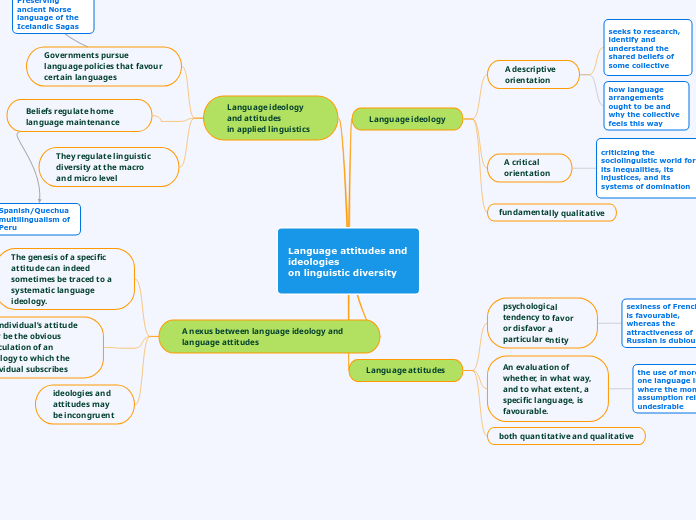Language attitudes and ideologies
on linguistic diversity
A nexus between language ideology and language attitudes
ideologies and attitudes may be incongruent
An individual’s attitude may be the obvious articulation of an ideology to which the individual subscribes
The genesis of a specific attitude can indeed sometimes be traced to a systematic language ideology.
Language ideology and attitudes
in applied linguistics
They regulate linguistic diversity at the macro and micro level
Beliefs regulate home language maintenance
Spanish/Quechua multilingualism of Peru
Governments pursue language policies that favour certain languages
Preserving ancient Norse language of the Icelandic Sagas
Language attitudes
both quantitative and qualitative
An evaluation of whether, in what way, and to what extent, a specific language, is favourable.
the use of more than one language in a place where the monolingual assumption reigns are undesirable
psychological tendency to favor or disfavor a particular entity
sexiness of French is favourable, whereas the attractiveness of Russian is dubious
Language ideology
fundamentally qualitative
A critical orientation
criticizing the sociolinguistic world for its inequalities, its injustices, and its systems of domination
A descriptive orientation
how language arrangements ought to be and why the collective feels this way
seeks to research, identify and understand the shared beliefs of some collective

